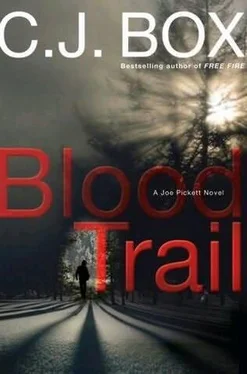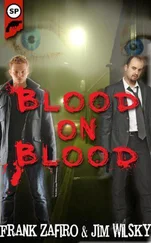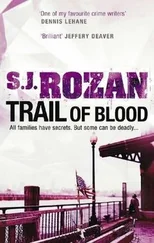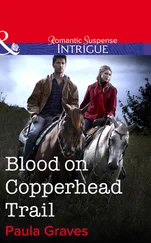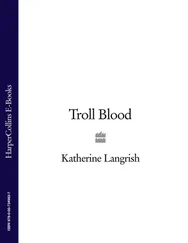“Go ahead and press charges,” Joe said. “Have me arrested. Take me officially off this case and then try to explain that to the governor.”
“Don’t tempt me,” Pope croaked. “If it was up to me-”
“But it is up to you,” Joe said, thinking if Pope fired him again he’d have the freedom to pursue the killer on his own, without official sanction. He had a promise to keep, and being relieved of the bureaucracy might unleash him to keep it.
Pope turned stiffly in the seat, glaring at Joe. “The governor wants to see both of us. He’s not happy. It would only be a little too convenient for you if you didn’t show up, now wouldn’t it?”
Joe shook his head. “The thought hadn’t occurred to me.”
“I’ll bet.”
Joe shrugged.
“Look,” Pope said, baring his teeth, “if I had my way you would never have gotten your job back with my agency. You’d still be a ranch hand, or whatever the hell you were a year ago. We can’t have cowboys like you out in the field anymore, not in this day and age. Just look at last night if you want evidence of what happens when you go off half-cocked. But I need you on this one, and I hate to say it. I really hate to say it. We need to find that shooter, and we need to do it fast. I need everybody I can get, even you. Especially you,” Pope said with distaste, “since you know the area.”
Joe looked away.
“But when this is all over,” Pope said, “you’re going to pay for what you did to me back there.”
He turned around with a huff.
Joe and Deputy Reed exchanged glances in the rearview mirror, and Reed rolled his eyes, as if to say, Bosses…
REED HAD to slow his cruiser in front of the county building on Main Street because of the small demonstration taking place. Cable news satellite trucks partially blocked the street, and cameramen pushed through the crowd photographing the crowd.
As they skirted the gathering, Joe could see Klamath Moore on the courthouse steps, his arms raised, leading the group of thirty-five to forty followers in a shouted hymn:
All things bright and beautiful, All creatures great and small, All things wise and wonderful, The Lord God made them all.
“And to think,” Reed said, “I used to like that song.”
Pope snorted his disgust at the protest. “Look, there’s nearly as many cameras as there are protesters. Where are the reporters covering murdered hunters? That’s what I’d like to know.”
Joe said nothing, but he surveyed the protesters as they passed by. Several he recognized from the airport. There was a group of four men who looked more like hunters than anti-hunters, Joe thought. The men were tall, burly, with cowboy hats and beards. Two of them-one angular with haunting dark eyes and the other beefy with a scarred face and an eye patch-glared back at him with hostility.
Off to the side of Klamath Moore, up on the steps, was the Native woman and her baby he had noted at the airport.
Many of the men looked hard, their faces contorted with grim passion as they sang. They were the faces of true believers, of the obsessed. He turned in the backseat to look at them out the rear window.
He wondered which of them was the shooter.
I sing,
The rich man in his castle,
The poor man at his gate,
God made them, high or lowly,
And order’d their estate.
And the words and melody, as always, seem to fill my sails, fill my soul, bringing me both relief and validation. But God, I am exhausted. I need rest. I can’t remember ever going so long without sleep. There are hallucinations at the edge of my vision: blood pouring from the hole in Wally Conway’s chest, the simpering sounds made by the other man, the one I didn’t know. I hear he was the county prosecutor. He shouldn’t have been there. It’s not my fault he was. But his death haunts me, will always haunt me, but what’s done is done.
I see the police car on the street, three men inside. I recognize two of them, the game warden named Joe in the back, Randy Pope in the front. Seeing them in the daylight, their faces pressed to the window as they pass, makes my blood boil. My reserve of will astounds even me. The sight of them fills me with renewed strength.
I wonder where they’re going. One thing I’m sure of, though, is that they’ll be back.
I sing,
All things bright and beautiful,
All creatures great and small,
All things wise and wonderful,
The Lord God made them all.
THE STATE-OWNED Mitsubishi MU-2 whined and shook as the twin props gummed their way through the thin mountain air and achingly pulled the airplane from the runway into the sky. Joe kept his eyes closed and his hands gripped tightly on the headrest of the seat in front of him as the ground shot by and he wondered if they’d reach cruising altitude before the plane shook apart. For the longest time, he forgot to breathe. The aircraft was the oldest one in the state’s three-plane fleet, and Joe had heard it described as “the Death Plane” because it was the same make and model that had crashed years before and killed the popular governor of South Dakota. Joe wondered if his governor was sending them a message by ordering the old death trap out of mothballs in the Cheyenne hangar and sending it north to pick them up. Inside, the seats were threadbare and a detached curl of plastic bulkhead covering vibrated so violently in the turbulence that it looked like a white apparition. There were six seats in the plane, three rows of two. Randy Pope sat in the first row and had put his briefcase on the seat next to him so Joe couldn’t use it. Not that Joe wanted to. Instead, he took a seat in the third row so he could grip the headrest in front of him and, if necessary, pray and vomit unobserved.
Eventually, as the craft leveled out and stopped shaking, he relaxed his grip, took a breath, chanced looking out the cloudy window. It helped, somewhat, to get his bearings. The Bighorns rose in the west looking hunched, dark, and vast like a sleeping dinosaur, and the town of Buffalo slipped beneath them. He noted how the North Fork and Middle Fork of the Powder River, Crazy Woman Creek, and the South Fork flowed west to east, one after the other, like grid lines on a football field. Joe envisioned each from ground level where he was much more comfortable. It calmed him to put himself mentally on the ground on the banks of the rivers, either in his pickup or on horseback where he could look up and see the silver airplane like a fleck of tinsel in a blue carpet. He sat back, closed his eyes, and tried to slow his heart down.
JOE AWOKE with a start as the plane bucked through an air pocket that left his stomach suspended in the air a hundred feet above and behind him. He was surprised he’d actually fallen asleep. Joe gathered himself and looked outside and saw the rims and buttes of Chugwater Creek and the creek itself. It wouldn’t be long before they touched down in Cheyenne. His feet were freezing from what he guessed was a leak in the fuselage, and he lamented that he’d not had time to change out of his bloody clothes before leaving for Cheyenne to see Rulon. He rubbed his face and shook the sleep from his head, saw that Pope, two rows up, was staring ahead at the drawn curtains of the cockpit. Not reading, not talking on his cell phone. Just staring, deep in thought.
Joe unbuckled his belt and moved up a row until he was behind and to the left of his boss. “Why did you bring Wally Conway?”
The question startled Pope, who flinched as if slapped.
“I didn’t know you were there,” Pope said. “Quit sneaking up on me.”
“Why did you bring Wally Conway?”
Pope looked at Joe, his eyes furtive. “I told you. I wanted a friend with me. Someone I could trust.”
Читать дальше
